If you're feeding your baby formula, there are things you can do to keep your baby safe and healthy. Talk with your doctor if you're not sure which formula to use or if you want to switch formulas. Tell your doctor if you're running out of formula and can't get more.
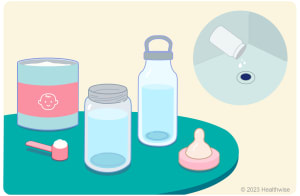
Follow the directions for preparing formula. Don't dilute the formula. Use the exact amount of water and formula the directions require. Use the formula within 2 hours of making it. Throw away any that's left in the bottle that you used to feed your baby.
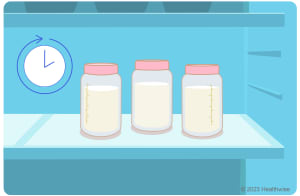
If you made extra formula, store it in the fridge within 2 hours. Use it within 24 hours.
How do you prepare and store the formula?
Clean the area
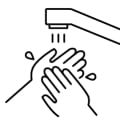
- Wash your hands.
- Clean any surfaces you plan to use before making bottles of formula.
- Use only bottles and nipples that have been cleaned in water and dish soap or a dishwasher.
Use the right formula
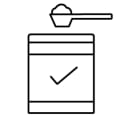
- Use formula with added iron unless your doctor says not to.
- Use formula that's not expired.
- Use formula from a package in good condition.
Use safe, clean water
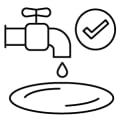
- Check with your health department if you're not sure if your tap water is safe.
- You can use bottled water.
- You can boil tap water and let it cool for 30 minutes to make it safe.
Get the formula ready
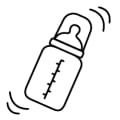
- Shake ready-to-feed formula before putting it in a bottle. Feed it to your baby right away.
- Mix liquid or powdered formula in a clean bottle by shaking. Do not use a blender. Add the water first, then the powder.
- If warming your baby's formula, put the bottle in warm water. Do not use a microwave.
- Test 2 or 3 drops of formula on your wrist to make sure it's not too hot.
Store the formula
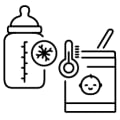
- Liquid or powdered formula that's been mixed can stay in the fridge for up to 24 hours.
- Ready-to-feed formula can be stored in the fridge for up to 48 hours after opening.
- Open powdered formula can be stored in a cool, dry place for up to 4 weeks. Do not put it in the fridge.
Follow-up care is a key part of your child's treatment and safety. Be sure to make and go to all appointments, and call your doctor if your child is having problems. It's also a good idea to know your child's test results and keep a list of the medicines your child takes.
Where can you learn more?
Go to http://www.healthwise.net/patientEd
Enter T223 in the search box to learn more about "Learning About Preparing and Storing Infant Formula".
Current as of: December 7, 2023
Author: Healthwise Staff
Clinical Review Board
All Healthwise education is reviewed by a team that includes physicians, nurses, advanced practitioners, registered dieticians, and other healthcare professionals.

